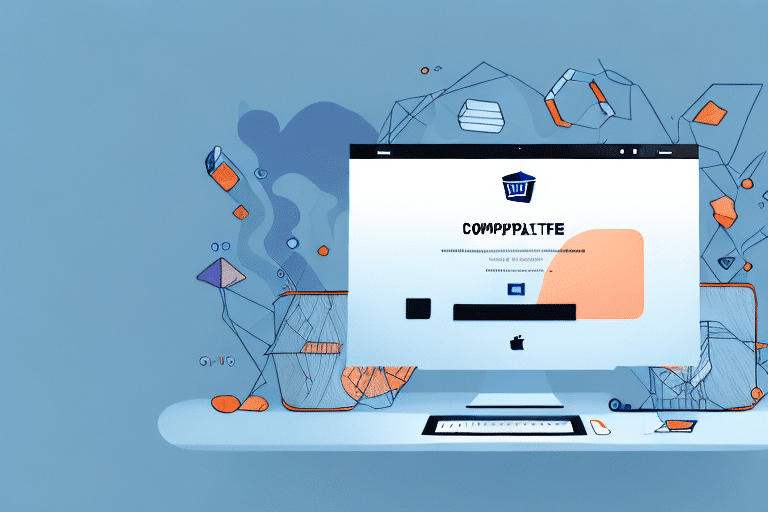A Technical Product Overview of Shopify E-Commerce Software Platform for B2B and DTC Businesses
If you're considering starting an online store, Shopify's e-commerce software platform is an excellent choice for both B2B (Business-to-Business) and DTC (Direct-to-Consumer) businesses. In this article, we'll delve into the features, benefits, and pricing plans for Shopify, providing you with a comprehensive understanding of how to create and manage your e-commerce store effectively.
Understanding Shopify's E-Commerce Software Platform
Shopify is an all-in-one e-commerce solution designed to cater to businesses of all sizes. With over 4 million active users worldwide, Shopify offers a robust set of tools that simplify the creation and management of online stores. The platform is renowned for its user-friendly interface, allowing users to design their stores without any coding expertise.
A standout feature of Shopify is its extensive App Store, which boasts thousands of add-ons and integrations. These apps enhance your store's functionality, ranging from marketing and sales tools to shipping and inventory management. Additionally, Shopify provides 24/7 customer support, ensuring assistance is always available when needed.
Benefits of Using Shopify for B2B and DTC Businesses
Shopify offers a myriad of benefits tailored to both B2B and DTC operations:
- Real-Time Tracking and Analytics: Monitor stock levels, sales performance, and customer behavior with comprehensive analytics tools.
- Mobile Accessibility: Manage your store on the go using Shopify's mobile app, ensuring you stay connected wherever you are.
- Diverse Payment Options: Accept a variety of payment methods, including PayPal, Stripe, and Apple Pay, to cater to customer preferences.
- Social Media Integration: Seamlessly connect your store to platforms like Facebook and Instagram to boost visibility and drive traffic.
- Customization: Choose from a wide array of templates and themes to create a unique, professional-looking website that aligns with your brand identity.
According to Shopify’s research, businesses on the platform have experienced significant growth, with many reporting increased sales and improved operational efficiency[^1^].
Key Features and Functionality of Shopify
User-Friendly E-Commerce Tools
Shopify provides a suite of powerful e-commerce tools that streamline the process of setting up and managing an online store:
- Drag-and-Drop Editor: Customize your store's layout effortlessly without any coding knowledge.
- Responsive Templates: Ensure your store looks appealing on all devices, from desktops to smartphones.
- Secure Hosting: Benefit from Shopify's reliable and secure hosting services, including SSL certification for safe transactions.
Comprehensive Inventory Management
Effective inventory management is crucial for maintaining product availability and customer satisfaction. Shopify offers:
- Real-Time Inventory Tracking: Keep track of stock levels and receive alerts when items are low.
- Product Variants: Manage different versions of a product, such as sizes and colors, from a single dashboard.
- Bulk Inventory Management: Handle large volumes of products efficiently with bulk editing features.
SEO and Marketing Tools
Shopify is equipped with built-in SEO tools to enhance your store's search engine ranking:
- Customizable meta titles and descriptions.
- Automatic sitemap generation.
- Optimized page load speeds.
Additionally, Shopify offers various marketing tools, including email marketing integration, social media advertising, and abandoned cart recovery, to help you reach and retain customers.
Setting Up and Customizing Your Shopify Store
Easy Setup Process
Getting started with Shopify is straightforward:
- Sign Up: Create an account on Shopify's website.
- Select a Pricing Plan: Choose a plan that aligns with your business needs.
- Design Your Store: Utilize Shopify's themes and drag-and-drop editor to customize your store's appearance.
- Add Products: Upload your products, set prices, and organize them into categories.
- Configure Settings: Set up payment gateways, shipping options, and tax settings.
Customization Options
Shopify offers extensive customization options to tailor your store to your brand:
- Themes and Templates: Choose from a variety of free and premium themes that are fully customizable.
- Custom CSS and HTML: For advanced users, Shopify allows modification of the underlying code to achieve unique designs.
- Apps and Plugins: Enhance your store's functionality with apps from the Shopify App Store.
Integrations and Third-Party Applications
Shopify’s vast ecosystem includes integrations with numerous third-party apps and services, enhancing your store's capabilities:
- Google Analytics: Track and analyze website traffic and user behavior for informed decision-making.
- Zapier: Automate workflows by connecting Shopify with over 2,000 apps.
- Mailchimp: Manage email marketing campaigns and customer communications effectively.
- Hootsuite: Streamline your social media management and marketing efforts.
- QuickBooks: Simplify accounting and financial management with seamless integration.
These integrations allow you to extend your store's functionality, streamline operations, and provide a better experience for your customers.
Managing Products, Inventory, and Payments on Shopify
Product Management
Shopify offers robust product management features to ensure your catalog is well-organized and up-to-date:
- Detailed Product Listings: Create comprehensive product descriptions with images, prices, and specifications.
- Collections: Organize products into collections for easier navigation and improved user experience.
- Product Variants: Manage different options like size, color, and material under a single product listing.
Inventory Tracking
Effective inventory tracking helps prevent stockouts and overselling:
- Real-Time Updates: Monitor inventory levels in real-time to maintain accurate stock counts.
- Low Stock Alerts: Receive notifications when inventory reaches predefined thresholds.
- Bulk Management: Handle large inventories efficiently with bulk editing capabilities.
Payment Gateways and Secure Transactions
Shopify supports a wide range of payment gateways, ensuring flexibility for your customers:
- PayPal
- Stripe
- Apple Pay
- Google Pay
- Shopify Payments
Additionally, Shopify offers robust security features, including PCI compliance and fraud analysis tools, to protect your business and your customers’ data.
Marketing, Analytics, and Optimization
Advanced Marketing Tools
To drive traffic and increase sales, Shopify provides various marketing tools:
- Email Marketing Integration: Connect with tools like Mailchimp to send newsletters and promotional campaigns.
- Social Media Advertising: Advertise your products directly on platforms like Facebook and Instagram.
- SEO Optimization: Utilize Shopify’s built-in SEO tools to enhance your store’s visibility in search engine results.
- Abandoned Cart Recovery: Automatically send emails to customers who leave without completing their purchase.
Comprehensive Analytics and Reporting
Understanding your store’s performance is key to making informed decisions:
- Dashboard Overview: Gain quick insights into key metrics such as sales, traffic, and conversion rates.
- Custom Reports: Create detailed reports tailored to specific aspects of your business.
- Customer Insights: Analyze customer behavior and preferences to tailor your marketing strategies effectively.
According to Shopify’s analytics reports, businesses leveraging these tools have seen significant improvements in their marketing ROI and sales growth[^2^].
Pricing Plans of Shopify E-Commerce Software Platform
Shopify offers a range of pricing plans to accommodate different business needs and budgets:
- Basic Shopify: $39 per month – Ideal for new businesses, includes essential features like online store, unlimited products, and 24/7 support.
- Shopify: $105 per month – Suitable for growing businesses, adds features like professional reports, gift cards, and lower credit card rates.
- Advanced Shopify: $399 per month – Designed for large enterprises, offers advanced reporting, third-party calculated shipping rates, and the lowest credit card rates.
These plans are scalable, allowing your business to grow without the need to switch platforms as your needs evolve.
Migrating to Shopify from Other E-Commerce Platforms
If you're currently using another e-commerce platform, Shopify makes migration seamless with its comprehensive set of tools and resources:
- Data Import Tools: Utilize Shopify’s built-in importers or third-party apps to transfer your products, customers, and orders.
- Migrating Staff and Permissions: Set up staff accounts and permissions to mirror your previous platform’s structure.
- Professional Migration Services: For complex migrations, Shopify offers expert services to handle the process, ensuring data integrity and minimal downtime.
Successful migration ensures that your store remains operational and maintains its data integrity during the transition.
Best Practices for Using Shopify for B2B and DTC Businesses
To maximize the potential of Shopify for your B2B or DTC business, consider the following best practices:
- Optimize for SEO: Leverage Shopify’s SEO tools to improve your store’s visibility in search engines.
- Enhance User Experience: Ensure your store is easy to navigate, mobile-friendly, and visually appealing to keep customers engaged.
- Utilize Analytics: Regularly review your store’s performance metrics to make data-driven decisions.
- Leverage Marketing Tools: Implement email marketing, social media advertising, and other strategies to attract and retain customers.
- Ensure Security: Use Shopify’s security features to protect customer data and build trust.
By adhering to these best practices, you can create a robust and successful online presence using Shopify.
Conclusion
Shopify stands out as a comprehensive e-commerce software platform that provides businesses of all sizes with the tools, features, and flexibility needed to thrive online. Whether you're launching a new store or looking to switch platforms, Shopify offers a scalable solution tailored to both B2B and DTC businesses. Its extensive feature set, seamless integrations, and adaptable pricing plans make it a top choice for entrepreneurs aiming to build, grow, and optimize their online presence effectively.






















